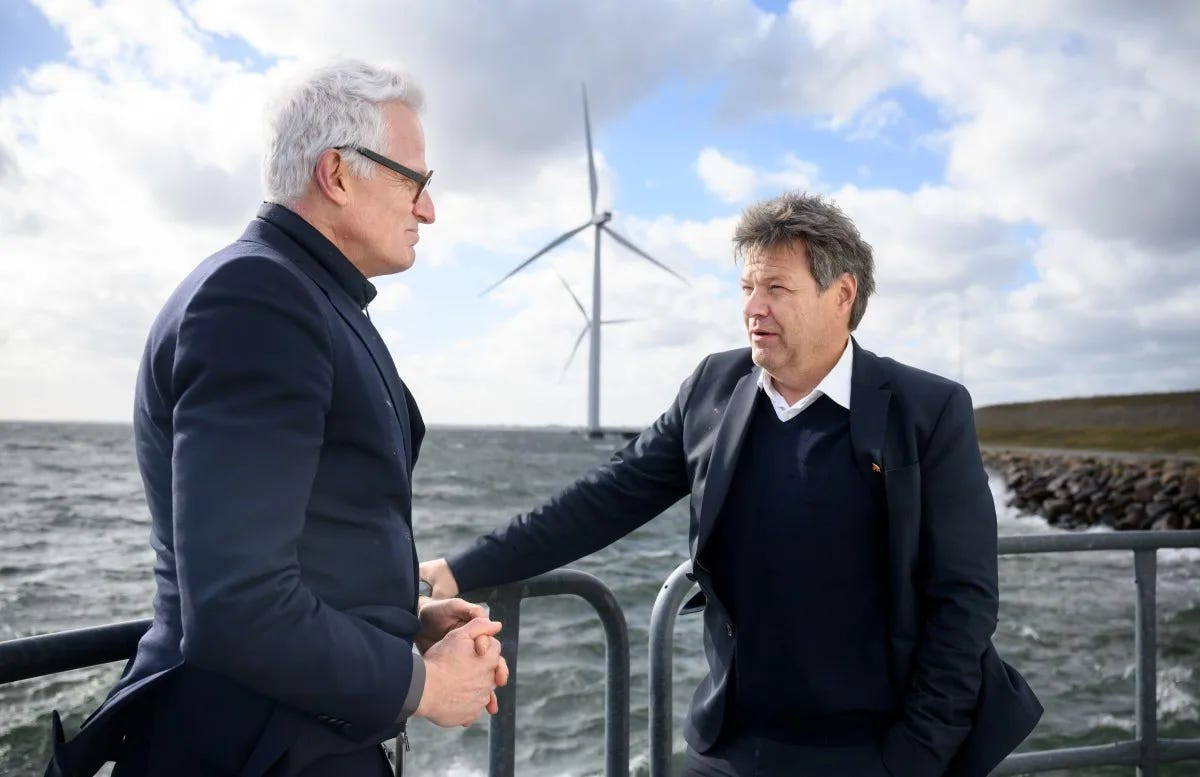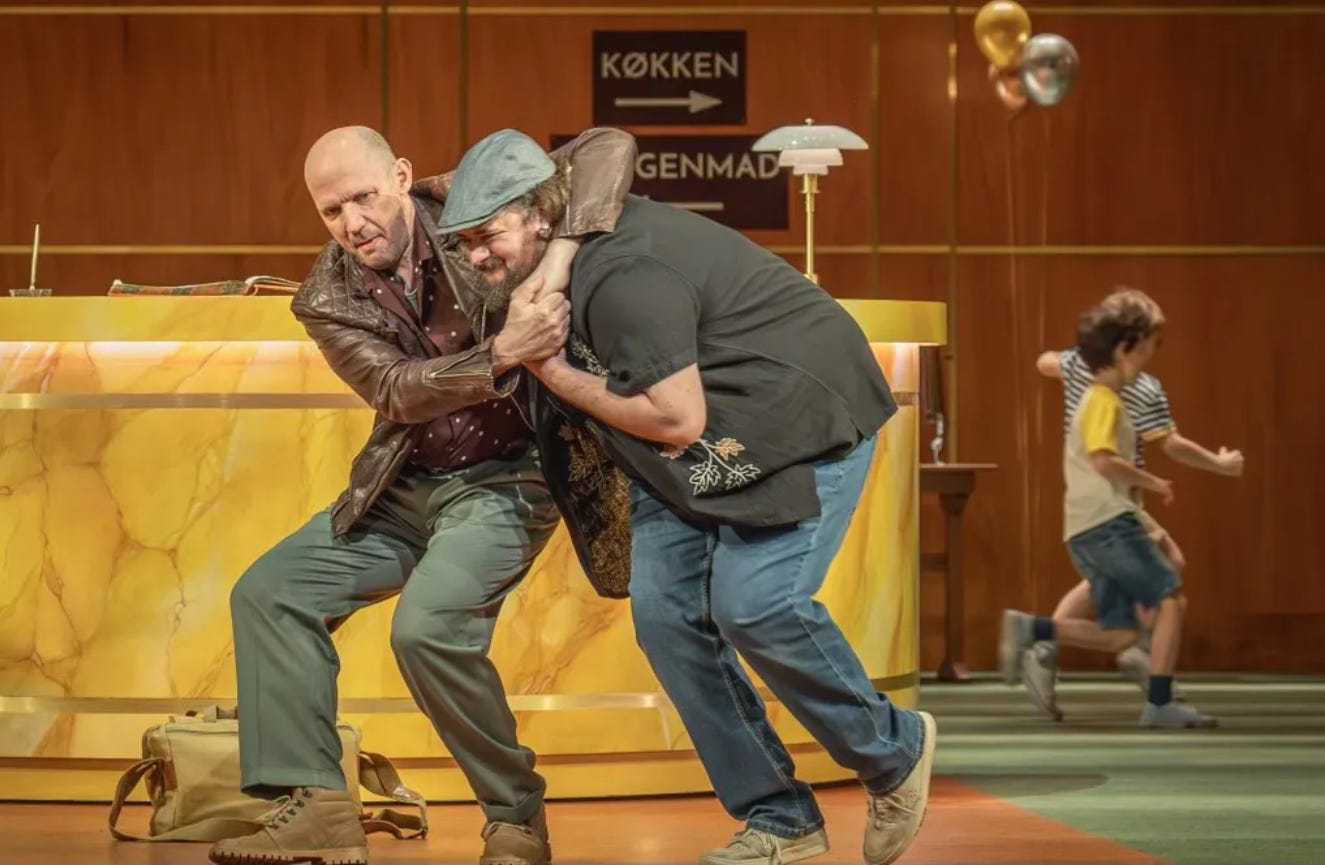JD Vance's speech exposes deep Euro-Atlantic divide - not just over Ukraine
While Vance is quick to slam thought-policing on the continent, the Trump administration has hardly demonstrated a genuine commitment to free speech.
On day one of the Munich Security Conference, a conference heavily overshadowed by Donald Trump’s bombshell phone call with Vladimir Putin, one could be forgiven for assuming that a rousing speech by the US Vice-President would be focussed on Ukraine.
But JD Vance had different plans. As he addressed world leaders and defence chiefs gathered in Germany this afternoon, his primary gripe appeared to be the erosion of free speech on the continent.
“The biggest threat to Europe is itself,” declared Vance provocatively, as he questioned what European values were even worth defending, accusing leaders on the continent of failing to safeguard “basic liberties”.
"What's the positive vision that animates this security compact?” asked the US Vice President, adding, “You can’t force people what to think, what to feel or what to believe… Unfortunately, when I look at Europe today, it’s sometimes not so clear what happened to some of the Cold War’s winners.”
Some of the examples he provided to demonstrate this so-called democratic backslide are undeniably troubling ones. He slammed the UK for arresting a citizen who peacefully protested near an abortion clinic and he criticised European leaders for “threatening and bullying companies to censor so-called misinformation”, citing the case of the online censorship of the Covid lab leak theory. A theory now widely accepted as a highly credible possible origin of the virus.
Other examples told one side of a far more complex story. He criticised European leaders, for instance, for their “cavalier” statements “sounding delighted” following the shock cancellation of elections in Romania. While this cancellation undeniably set a dangerous precedent, there is the important counter that many considered the vote undemocratic in the first place given Russian election interference.
He also blasted “political firewalls around radical parties” - in an apparent reference to Germany’s hard-right AfD party. Though it is worth remembering the historical origins of this firewall in Germany: erected to keep fascist forces out of power after the fall of the Nazi regime.
Though Vance is only too quick to slam the censorship and thought-policing plaguing the continent, it is worth questioning to what extent those in the Trump administration have, so far, demonstrated a genuine commitment to free speech.
Or rather has the censorship of one worldview been replaced by the censorship of another?
While Trump has issued an executive order promising to end government censorship and restore free speech, during his war on “woke” ideology, he has already taken multiple actions to censor speech he dislikes, circulating lists of banned words for staff of government agencies.
And, although the “no-platforming” of professors who insist that sex is biologically determined might be the kind of free speech assault concerning individuals in Britain, we should stop to question what kind of precedent Trump is setting when he issues an executive order, titled “Ending Radical Indoctrination in K-12 schooling”, that could theoretically see teachers investigated by federal officials and prosecuted for referring to gender non-confirming students by their preferred pronouns or name.
Vance’s lecture to Europe would carry more weight if we saw evidence that those in Trump’s administration are engaged in an honest effort to bolster free speech protection, even when views being expressed run counter to their own narrative and worldview.
Ultimately, his speech today, which mentioned Ukraine briefly - “We believe we can come to a reasonable settlement between Russia and Ukraine” - served Putin in that it further exposed the deep divisions between Ukraine’s allies. And not just over the future of Ukraine itself.
Ukrainian MP Oleksiy Honcharenko, who was at the Munich Security Conference today, described the speech as "the total humiliation of all European leaders”.
Caitlin Allen
Deputy Editor
ON REACTION TODAY
Tim Marshall
The perils of a “temporary peace through weakness” strategy in Ukraine
Neil Collins
Oil giants are learning that it ain’t easy being green
Gerald Malone
Bad boy composer Turnage’s party from hell
ALSO KNOW
Zelensky-Vance meeting - Following a meeting with JD Vance on the sidelines of the Munich Security Conference this evening, Ukrainian President Volodymyr Zelensky insisted that he is “ready to move as quickly as possible towards a real and guaranteed peace”. Posting on X, the Ukrainian leader said: “We deeply value President Trump’s determination, which can help stop the war and secure justice and security guarantees for Ukraine.” He added that he would welcome General Kellogg, America’s Ukraine-Russia envoy to Ukraine next week for “a deeper assessment of the situation on the ground”.
Hamas releases names of three hostages – The three Israeli hostages expected to be freed on Saturday in exchange for Palestinian prisoners have been named: Russian-Israeli Alexander Troufanov, Argentine-Israeli Yair Horn, and US-Israeli Sagui Dekel-Chen. Some 16 Israeli and five Thai hostages have been released in exchange for 766 prisoners since the beginning of the ceasefire on 19 January.
Trump tariff concerns for UK – Donald Trump’s tariffs will hurt Britain more than China, warns economic consultancy Capital Economics. According to its new analysis, the President’s proposal to put levies on countries that charge VAT could result in a 24 per cent import tax on goods from the UK. Trump also threatened retaliation by the US for other “unfair or harmful acts, policies or practices.”
Sudan to develop Russian naval base in Africa – Sudan has confirmed that a plan for Russia to establish its first naval base in Africa will go ahead. The Foreign Minister Ali Youssef said a final deal has been agreed, after years of delay. The US, China and France already have a presence in the region, in the seas off the Horn of Africa.
FIVE THINGS
1. Could Elon Musk’s government takeover happen in the UK? Stephen Clear, constitutional law expert, in The Conversation.
2. Nothing is worse than an inconclusive peace, writes Tim Bouverie in Engelsberg Ideas.
3. Will Iran’s next Supreme Leader be its last? Akbar Ganji in Foreign Affairs.
4. Vance: free speech ‘in retreat’ in UK. Steerpike in The Spectator.
5. How a computer that “drunk dials” videos is exposing YouTube’s secrets. Thomas Germain in BBC Future.







When you say "it is worth remembering the historical origins of this firewall in Germany: erected to keep fascist forces out of power after the fall of the Nazi regime", isn't the point he is making that "who watches the watchers?" - do I get to call a party 'far left' and then pour state funding into suppressing them? Of course not.
But in Germany, that's what's happening to both the right wing parties. During a key debate earlier in the month, Antifa stormed the HQ of the CDU, the party of both Merkel and Adenauer that has been at the centre of German politics since 1949 - but they don't get banned. And Welt reports here how the state funds the protests against the CDU and the AfD (supported by c. 50% of German voters).
https://www.welt.de/politik/deutschland/plus255383550/Finanzierung-Demos-gegen-rechts-Der-Staat-darf-nicht-mit-Steuergeldern-auf-die-oeffentliche-Meinungsbildung-einwirken.html
Surely this is what JD Vance is getting at? Freedom of speech is important, and it is not for out of touch politicians and a civil service that have mismanaged the last decades to pour taxpayers' money into suppressing 'revolting' voters just because they are fed being told what to think by elite rulers who are not exactly exhibiting competence.